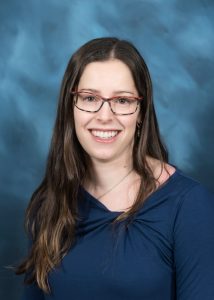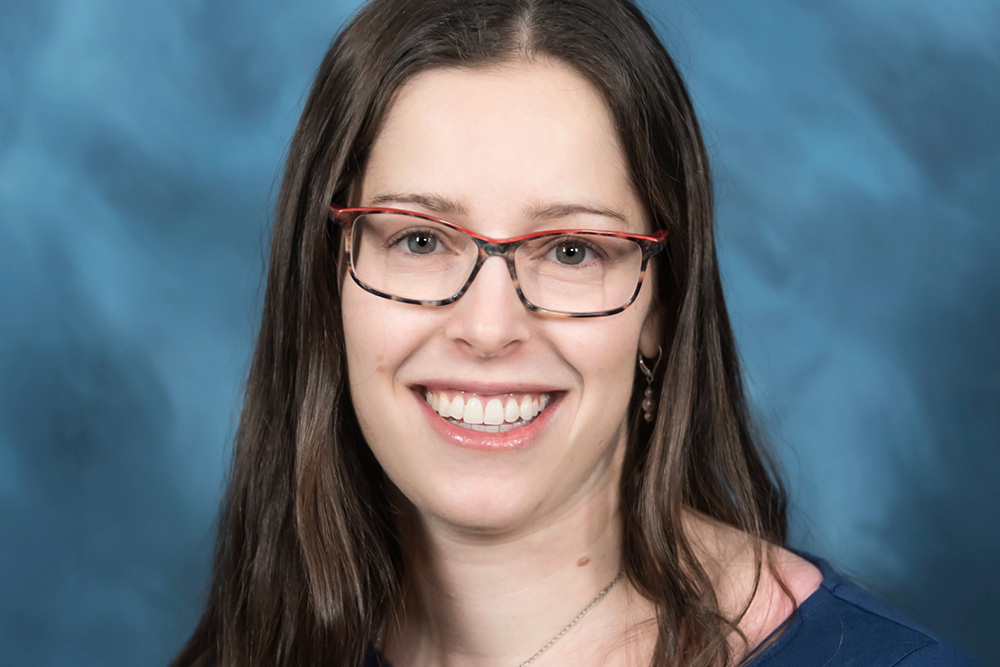When Middlesex Health orthopedist Amy Wasterlain, MD, first set her sights on becoming a physician, she didn’t think orthopedic surgery was even an option. “The whole stereotype was that you had to be a big, strong man to go into that field,” she recalls. “I thought I physically wouldn’t be able to do it and was intimidated.”
But early in her first year of medical school, she met a female orthopedist, an encounter that would influence the trajectory of her career. After scrubbing in with her in the operating room and observing her in the orthopedic clinic, Dr. Wasterlain was hooked. “I discovered that orthopedics is a fantastic specialty to go into, where you have a wonderful opportunity to improve patients’ quality of life,” she says.
Today, Dr. Wasterlain, in turn, works to encourage and empower younger women to become orthopedic surgeons by teaching an annual outreach workshop for The Perry Initiative, a nonprofit organization geared toward inspiring girls to become leaders in the traditionally male-dominated fields of orthopedics and engineering. “We’re seeing huge increases in the numbers of surgery residents who are female,” she says with pride.
A passion for taking care of people

A native New Yorker, Dr. Wasterlain grew up in Brooklyn and Manhattan. She studied molecular biology at Princeton University, where she developed a strong interest in research and considered pursuing an MD or combined MD/PhD. “But I ultimately realized that I was able to get my research goals accomplished if I went the MD route,” she says. “My passion was really in taking care of people rather than in bench research.”
She earned her medical degree at Stanford University, and did her residency at the NYU Hospital for Joint Diseases in New York. She completed an additional year of fellowship training in adult reconstruction (hip and knee replacement) at the Rothman Orthopaedic Institute in Philadelphia.
“For my entire life, I always thought I’d be a New Yorker,” she says. But then an alumnus from her residency program reached out to her class regarding a possible position with Middlesex Health. “I really fell in love with the shoreline area as a place to live with my family, but I was also really compelled with the need out here for a joint reconstruction specialist.”
Dr. Wasterlain, who joined the Middlesex staff last August, treats a wide range of orthopedic conditions, the most common of which is arthritis, the chronic degeneration of cartilage. “Evolutionarily, the human species used to only live a maximum of 30 years – so our cartilage often, unfortunately, doesn’t last as long as our bodies do,” she explains. “With age, you get wear and tear of the cartilage.”
According to Dr. Wasterlain, age isn’t the only risk factor for arthritis: Obesity increases the rate of joint degradation. Prolonged cortisone use can also make people more susceptible. Sometimes people who are on high doses of steroids for asthma or autoimmune diseases experience avascular necrosis – or a loss of blood supply to the bones – which can lead to arthritis.
Whatever the cause, she says, arthritis is the most common reason that patients end up requiring hip and knee replacements.
Improving hip replacements
Though both congenital abnormalities in bone structure (dysplasia) and fractures can lead to the need for hip replacement, arthritis is the driving force behind hip problems for most replacement patients, she notes. The main symptoms that bring these patients to her office are groin or buttocks pain, sometimes radiating down to the thigh or the knee.
“People will complain of pain with any kind of rotation, like swinging a golf club, getting in or out of a car, or even trying to put on shoes and socks,” she explains. “When it’s really starting to affect your quality of life – when you’re noticing pain with really basic activities, that’s when it’s time
Photo courtesy of Middlesex Health





More Stories
Over 50, Underestimated: The Grandfluencers Redefining Age on Social Media
Building Resilient Businesses: Strategies for Success
Summer Means Convertibles